Notebook
-
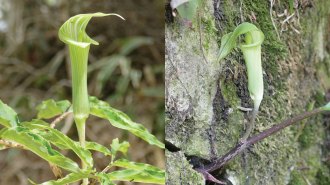 Plants
PlantsThese flowers lure pollinators to their deaths. There’s a new twist on how
Some jack-in-the-pulpit plants may use sex to lure pollinators. That's confusing for male fungus gnats — and deadly.
By Susan Milius -
 Tech
Tech50 years ago, the future of solar energy looked bright
In the 1970s, scientists and engineers were coming around to the idea of “farming” the sun’s energy on a large scale.
By Aina Abell -
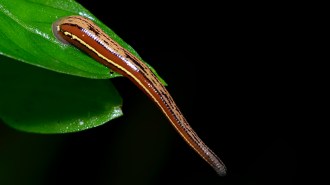 Animals
AnimalsLeeches expose wildlife’s whereabouts and may aid conservation efforts
DNA from the blood meals of more than 30,000 leeches shows how animals use the protected Ailaoshan Nature Reserve in China.
By Nikk Ogasa -
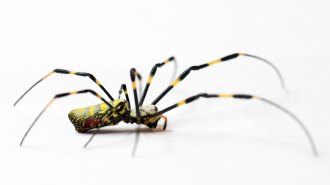 Animals
AnimalsInvasive jorō spiders get huge and flashy — if they’re female
Taking the pulse (literally) of female jorō spiders hints that the arachnid might push farther north than a relative that has stayed put in the South.
By Susan Milius -
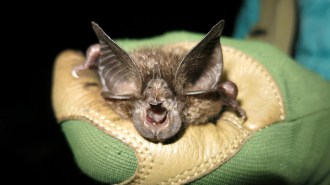 Animals
AnimalsHow scientists found an African bat lost to science for 40 years
African researchers had been searching for the Hill’s horseshoe bat since 2013. Now, the first recording of its echolocation call may help find more.
By Anna Gibbs -
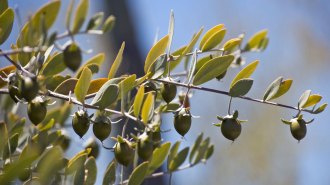
50 years ago, scientists thought a desert shrub might help save endangered whales
Fifty years ago, scientists sought a sustainable alternative to prized oil from endangered sperm whales.
-
 Math
MathHow the way we’re taught to round numbers in school falls short
A rounding technique taught in school doesn’t work well for machine learning or quantum computing, but an alternative approach does, researchers say.
-
 Earth
EarthHow climbers help scientists vibe with Utah’s famous red rock formations
Researchers teamed up with rock climbers to collect rare data that help them assess the seismic stability of red rock formations in Utah.
-
 Health & Medicine
Health & Medicine50 years ago, oxygen was touted as a potential memory loss treatment
In 1972, researchers were studying whether hyperbaric chambers could help reverse senility. Today, science is still piecing together clues.
-
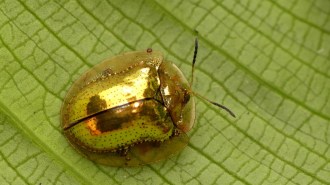 Animals
AnimalsMirror beetles’ shiny bodies may not act as camouflage after all
Hundreds of handmade clay nubbins test the notion that a beetle’s metallic high gloss could confound predators. Birds pecked the lovely idea to death.
By Susan Milius -
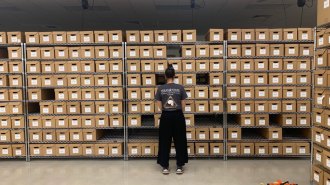 Chemistry
ChemistryOne forensic scientist is scraping bones for clues to time of death
The bones of more than 100 cadavers are shedding light on a more precise and reliable way to determine when someone died.
-
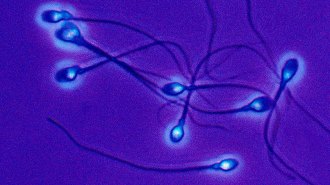 Humans
Humans50 years ago, freezing sperm faced scientific skepticism
In 1972, scientists debated the long-term viability of frozen sperm. Fifty years later, children have been conceived with sperm frozen for decades.
By Aina Abell